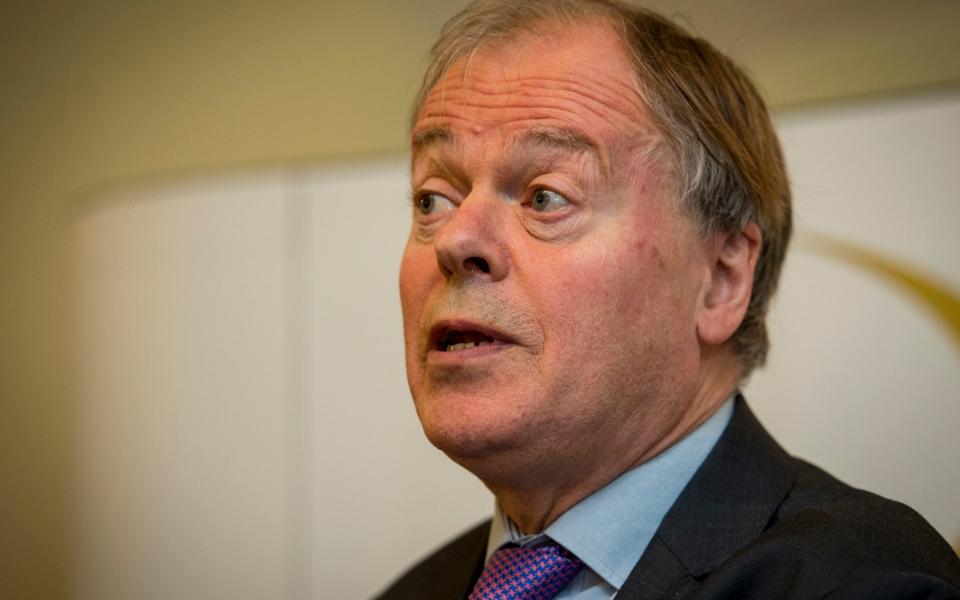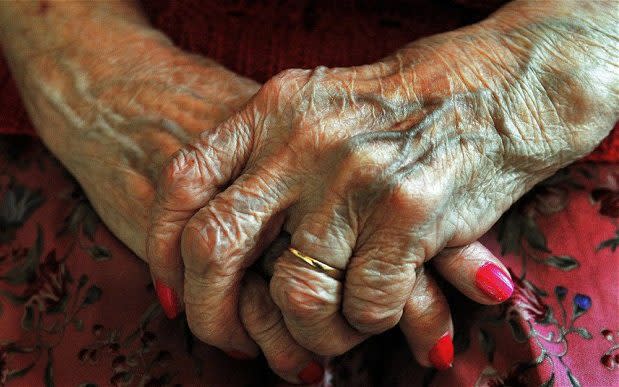Private care home residents pay nearly £10,000-a-year extra to subsidise council shortfalls

Private care home residents are paying nearly £10,000-a-year extra to subsidise local authority patients because councils can no longer afford their bills, MPs have found.
A report by the Communities and Local Government Committee discovered that 96 per cent of people who paid for private care were unknowingly spending an average of 43 per cent more than their state-funded neighbours for the same room and same level of attention.
Care home campaigners said it amounted to a ‘stealth tax’ on private residents. The average cost of a private care home in the UK is approximately £31,000 a year, but the report suggests that is should be closer to £22,000 if private residents did not have to pick up the council shortfall.
The CLG Committee said it was unacceptable that private individuals were picking up the bill for council deficits and called for an urgent review of social funding.

Clive Betts, Chair of the Communities and Local Government Committee, said: “It’s a very big difference in terms of what private individuals are paying.
“In many cases, councils will not be meeting the cost of their residents at all and constantly re-negotiating down how much they are willing to spend, so care providers have no choice but to find the money from their private residents.
“There is a clearly a crisis in social care, not just in funding but in provision. A long-term fix, working on a cross-party basis and involving the public and social care sector, is urgently necessary to meet the ever-increasing demographic pressures on the system.”
MPs found that several care providers including Kent Integrated Care Alliance and Brunelcare had been told by councils that their private rates “should be raised in order to subsidise the socially funded provision”.
Stephen Burke, director of the Good Care Guide and United for All Ages, said: “This is a stealth tax on people who fund their own care home places.
“The care system is so underfunded that some care homes can only make ends meet by cross-subsidizing state funded residents. We need a properly funded care system that is fairer, simpler and sustainable to meet the needs of our ageing population.”

MPs warned that government’s commitment to provide an additional £2 billionn for social care over the next three years will falls short of the amount required to close the social care funding gap.
The advised implementing a new social care tax, similar to that in Germany, where around one per cent of salary is deducted each month from employees to fund future social care, which is matched by employers.
“I think if Britons knew that the money was being spent on social care they would be happy for it to be taken,” added Mr Betts.
The report found that more than a quarter, 28 per cent, of care services are inadequate, or require improvements, and just one in 12 adult social care directors are fully confident that their local authority will be able to meet its statutory duties in 2017-18.
More than a quarter of care workers, 27 per cent, received no dementia training, and 24 per cent of those who administer medication are not trained to do so, the report stated.
Care providers told MPs that they were being ‘pushed to the brink of financial viability’ by council cost cutting, with many forced to ‘exit the market and hand back contracts.
Between 160,000 and 220,000 care workers are paid below the national minimum wage, while the number of unpaid carers has increased by 16.5 per cent between 2010 and 2014.
The Committee warned that councils are increasingly taking a “price first, quality second approach” in their commissioning of social care, with accounts of some councils paying as little as £2.24 an hour for residential care
MPs concluded said funding levels meant councils were in "panic mode", providing help to fewer people, and that the deterioration in overall care quality was set to continue.
Mark Atkinson, Chief Executive at disability charity Scope, said: “It is a sad indictment of the care system that just one in twelve councils think they meet their duty to deliver the care that disabled people have a legal right to.
“This report is yet more evidence we need a long-term funding solution for social care.
“Hundreds of thousands of disabled people rely on care to live independently, but we know too many disabled people aren’t getting the support they need.
“It is vital the Government uses the upcoming Green Paper on social care to finally deliver a long-term solution to the crisis in care.”

 Yahoo News
Yahoo News 
